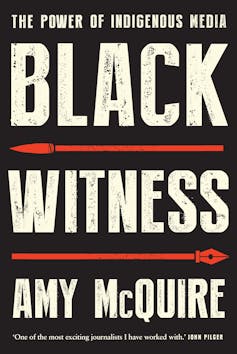Is objectivity ‘colonial’? Amy McQuire argues Black, activist journalism must compensate for our mainstream media’s blindness
- Written by Matthew Ricketson, Professor of Communication, Deakin University

This article contains information on deaths of First Nations people in custody and the names of people who are now deceased.
Do the names Mulrunji Doomadgee or Layla Leering or Fionica James mean anything to you? Have you heard of the case of Rebecca Maher? What about that of Kevin Henry?
If you are anything like me, an older white man in a position of privilege, you probably have heard of the first name. Mulrunji Doomadgee died in a Palm Island police cell in 2004 after an altercation with a police officer, Chris Hurley. Hurley was charged with manslaughter, but acquitted. You have probably heard of that case because it was written up in an acclaimed 2008 book, Chloe Hooper’s The Tall Man, later a documentary.
Black Witness: The Power of Indigenous Media – Amy McQuire (UQP)
The other names I had not heard of. Had you? They are among the many Indigenous women and men who have been killed, whether by strangers, their partners or police in recent years The deaths of Leering and James were initially listed as suicide. But the Northern Territory coroner found in 2020 that these women had suffered sexual violence, referring their cases to the Director of Public Prosecutions. I’ll come later to Maher and Henry’s cases.
The names listed above are all from Darumbal and South Sea Islander journalist and academic Amy McQuire’s important book, Black Witness, which delivers a stinging critique of the way mainstream media operates.
McQuire rejects outright journalistic norms espoused by the mainstream media, such as objectivity, which she believes are “colonial”. By this, she means notions of “balance” and “fairness” need to be seen through the prism of who has the power to decide what is reported and what isn’t, rather than assuming balance and fairness apply equally to everyone.
Quoting Aileen Moreton-Robinson, McQuire says this is why it is imperative that First Nations people take control of their representation. “As Black journalists, we write or broadcast in service of our communities […] That means Black journalism is never separated from activism; it is an arm of it”.



















